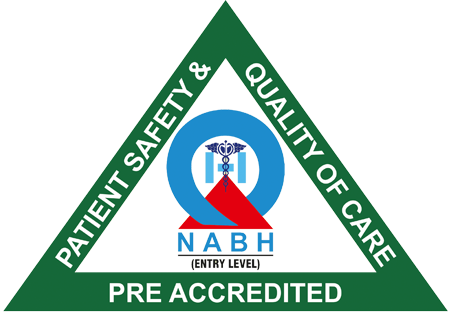Best Gynecologist in Jaipur
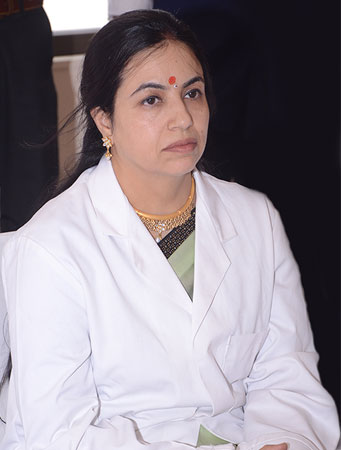
Dr. Raman Narang is one of the most renowned Gynecologist & Obstetrician Doctors in Jaipur. Countless locals in Jaipur have placed immense trust in the practitioner over the years.
Services offer by Dr. Raman Narang are:-
- Infertility Treatment,
- Diagnostic Lapaaroscopy,
- Cesarean Delivery,
- Hysteroscopy,
- Normal Delivery.
Procedures follow by Dr Raman Narang are:-
- Laparoscopic Hysterectomy,
- Laparoscopic Myomectomy,
- Dilation and Curettage,
- Dilation and Evacuation,
- HSG Tube Test.
Time Schedule Box
Morning 10:00 AM – 2:00 PM
Evening 5:00 PM – 8:00 PM
Address A-288, Nemi Nagar Extension, Block A, Behind National Handloom, Vaishali Nagar, Jaipur, Rajasthan (302021)
What Do We Treat?
Infertility Treatment

Many treatments significantly improve the chances of getting pregnant. They include hormone treatments, fertility drugs and surgery. In addition, assisted reproduction uses various medical techniques to fertilise an egg.
Diagnostic Lapaaroscopy
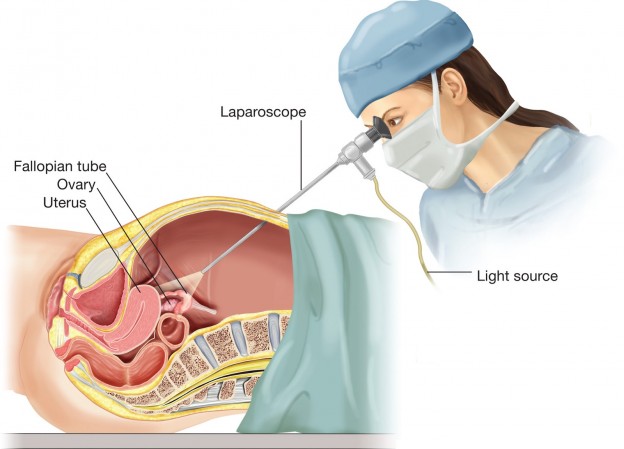
Laparoscopy can be used to help diagnose a wide range of conditions that develop inside the abdomen or pelvis. It can also be used to carry out surgical procedures, such as removing a damaged or diseased organ, or removing a tissue sample for further testing (biopsy).
Cesarean Delivery
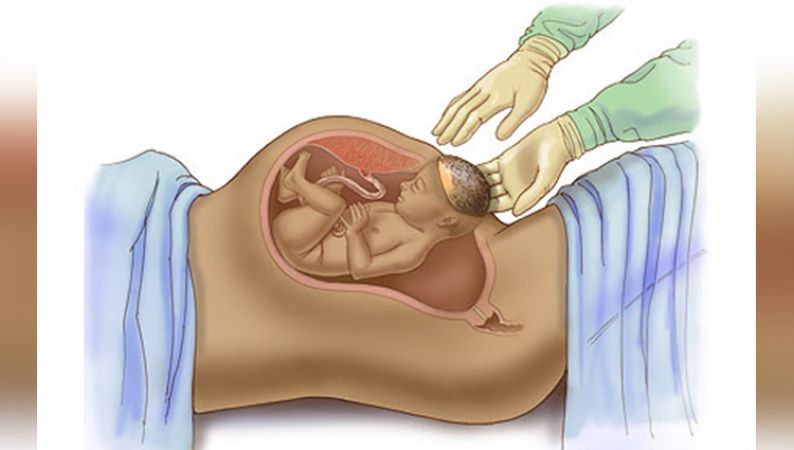
Cesarean delivery (C-section) is used to deliver a baby through surgical incisions made in the abdomen and uterus. Planning for a C-section might be necessary if there are certain pregnancy complications. Women who have had a C-section might have another C-section.
Normal Delivery
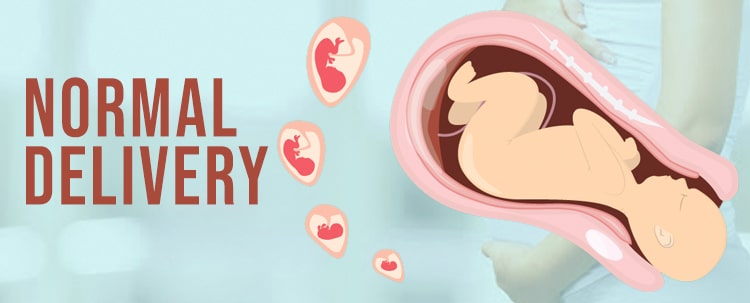
A vaginal delivery is the birth of offspring in mammals (babies in humans) through the vagina (also called the “birth canal”). It is the most common method of childbirth worldwide. It is considered the preferred method of delivery, with lower morbidity and mortality than Caesarean sections.
Hysteroscopy
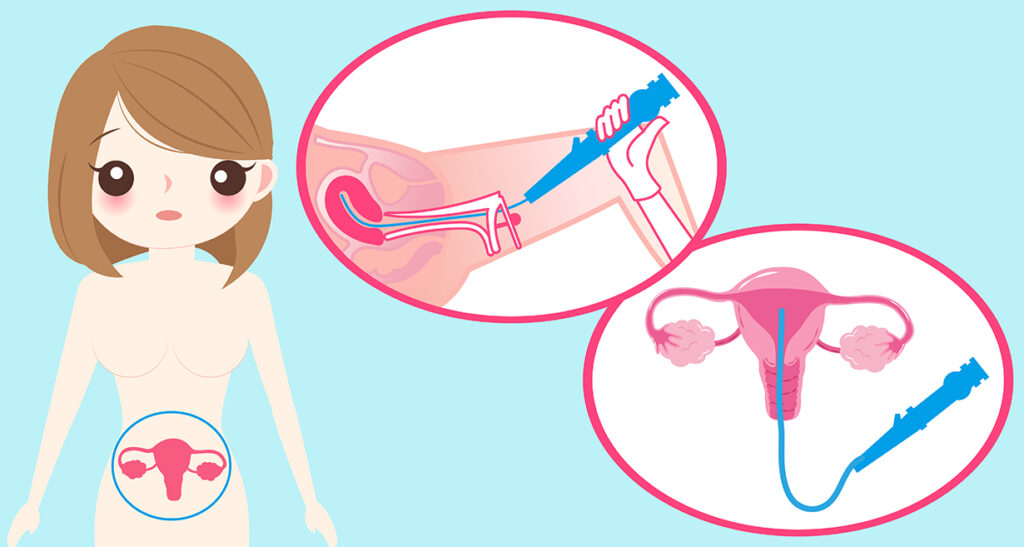
Hysteroscopy is the inspection of the uterine cavity by endoscopy with access through the cervix. It allows for the diagnosis of intrauterine pathology and serves as a method for surgical intervention.
Treatment Procedures
Laparoscopic Hysterectomy
Laparoscopic Myomectomy
In laparoscopic or robotic myomectomy, both minimally invasive procedures, your surgeon accesses and removes fibroids through several small abdominal incisions.
Dilation and Curettage
Dilation and curettage refers to the dilation of the cervix and surgical removal of part of the lining of the uterus and/or contents of the uterus by scraping and scooping.
Dilation and Evacuation
Dilation and evacuation is the dilation of the cervix and surgical evacuation of the uterus after the first trimester of pregnancy. It is a method of abortion as well as a common procedure used after miscarriage to remove all pregnancy tissue.
HSG Tube Test
Hysterosalpingography, or HSG, is an X-ray test to outline the internal shape of the uterus and show whether the fallopian tubes are blocked. In HSG, a thin tube is threaded through the vagina and cervix. A substance known as contrast material is injected into the uterus.
Frequently Asked Questions
Gynecologists are medical experts who specialize in dealing with disorders related to women’s health with a major focus on the female reproductive system. A gynecologist is involved with diagnosing and managing the issues concerned with menstruation, menopause, contraception, infertility, sexually transmitted infections(STIs), hormonal dysfunction and others. They also render specialized care in obstetrics, pregnancy and childbirth.
Since both of these specialities are quite similar you will find most of the doctors rendering care in both the fields. Hence, such doctors are referred to as OB-GYNs.An OB-GYN has a medical degree, and they are trained solely in dealing with women’s reproductive and general health. They hold experience in handling every medical aspect of pregnancy, from labor and delivery to the postpartum period, as well as any complications and twin pregnancies. However, you will find gynecologists dealing with the women’s general reproductive health issues whereas obstetricians limit their practice to pregnancy and childbirth.
It is generally assumed that both the obstetrician and gynecologist perform the same job. Although they have many similarities this is not the case. A gynecologist possesses expertise in only one field i.e. gynecology where the general reproductive health of the women is taken into consideration and such professionals are not authorized to deal with labor and childbirth. Whereas, obstetrician holds 2 degrees i.e. obstetrics and gynecology. Obstetricians deals with the care of pregnant women, the unborn baby, labor and delivery and the immediate period following childbirth. The obstetrician ensures that mother and child get the best prenatal care to ensure labor and delivery are accomplished without complications. They can also provide therapies for an individual to conceive. If there is premature birth, then they can provide specialized care in NICU (Neonatal Intensive Care Unit) to the born child.
There are several health conditions which are treated by an obstetrician and gynecologist. Some of the conditions which require consultation with your gynecologist are mentioned here: menstrual disorders, extreme uterine bleeding, PCOS, pelvic inflammatory disease, adhesion issues, endometriosis, infertility, sexually transmitted infections(STIs), urinary tract infections(UTIs), menopause symptoms, issues with bladder such as bladder prolapse, cervicitis, vaginismus, several kinds of cancer, DSE exposure, endometrial hyperplasia, dysmenorrhea, dysplasia, menorrhagia, hormonal disorders, genital warts, ovarian cysts, tumours and many others.
For a female to conceive, her body undergoes several changes so that the baby can survive in the surrounding environment. Along with this, it is equally important for a woman to advocate lifestyle changes and to take the required measures so that the pregnancy can be planned well with no further complications. So here are a certain number of things which you need to keep in your mind while you are expecting or planning for pregnancy:
- Take good care of your sleep cycle
- Eating nutritious food and avoiding junk foods
- Keep a proper check on your cycle
- Keep yourself hydrated by drinking enough water, juices etc.
- Boost your immune system by taking a daily dose of Vit C and antioxidants.
- Incorporate mild exercises and yoga into your routine, this will help in achieving smooth labor.
- Ensure that you go regularly for check-ups.
- If you are an alcoholic then you must quit drinking, smoking and usage of certain drugs beforehand.
- Reach and try to maintain a healthy weight.
- Incorporate folic acid into your diet.
It is of utmost importance that you pay routine visits to your gynecologist. In this way the doctor will be able to closely monitor your child and also your health. Also, any complications and mishappenings can be controlled beforehand. You should visit your doctor once every month starting from the fourth week of conception to the 28th week of conception. You must ensure to visit once in two weeks starting from week 29th to week 37th of conception. And you should visit the doctor once a week starting from the 36th week to the 40th week of conception.
A female is more likely to observe several changes in her body during the age of 13-15 years. Hence, an age of 13-15 years is considered appropriate for a female to commence visiting and consulting her doctor regarding her health. Women in this age go through several changes as their bodies start advocating various changes for easier conception. This is a scenario of every month so any abnormalities during this tenure can’t be negotiated. It can become a quite confusing and anxious state for a young woman to deal with. Hence proper consultation and guidance from a gynecologist is a must during this period. This will help her in understanding her body better and this way she will be able to adapt to the new changes occurring in her body.
A gynecologist performs various tests to diagnose and confirm the disease. Here is a list of tests which your gynecologist might recommend:
Bone density exam, hormonal disorders test, cervical biopsy, colonoscopy, laparoscopy, ultrasonography, endometrial biopsy, hysteroscopy, Magnetic Resonance Imaging, pelvic tests, pregnancy testing, Pap test, STD screening and others.
Talking in general, one should go and see a gynecologist once a year However, when someone is experiencing and observing any abnormalities related to gynecology such as irregular and insufficient menstrual bleeding, vaginal yeast infections, issues of uterine fibroids, issues of endometriosis, urinary inconsistency, pelvic painfulness, etc they should immediately go and visit a gynecologist to get consultation and the appropriate treatment for tye conditions.
Other conditions which might need you to get in touch with your gynecologist are:
- Abnormal/painful periods
- Menopause symptoms
- Breast pain or lumps
- Urinary tract infections (UTIs)
- PCOS
- Heavy menstruation
A gynecologist treats various medical conditions such as menstrual disorders, extreme uterine bleeding, PCOS, pelvic inflammatory disease, adhesion issues, endometriosis, infertility, sexually transmitted infections(STIs), urinary tract infections(UTIs), menopause symptoms, issues with bladder such as bladder prolapse, cervicitis, vaginismus, several kinds of cancer, DSE exposure, endometrial hyperplasia, dysmenorrhea, dysplasia, menorrhagia, hormonal disorders, genital warts, ovarian cysts, tumours and many others.
There are various symptoms which will make it necessary to consult with your gymnastics. Some of the alarming symptoms could be:
- Abnormal/painful periods
- Menopause symptoms
- Breast pain or lumps
- Urinary tract infections (UTIs)
- PCOS
- Heavy menstruation
- Irregular and insufficient menstrual bleeding
- Vaginal yeast infections
- Issues of uterine fibroids
- Issues of endometriosis
- Urinary inconsistency
- Pelvic painfulness


